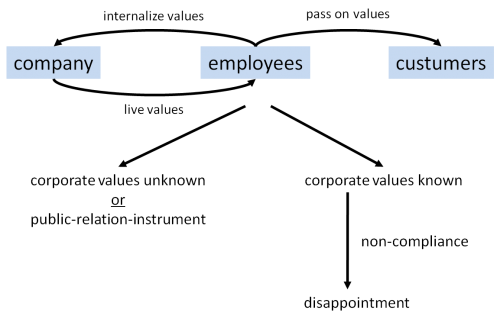Categories: Seminar SS11
Marketing 3.0 – New Issues in Marketing:
From Integrated Marketing Communication to the Marketing of Sustainable Leaders
E-Book: Marketing 3.0 (PDF, 1,2 MB)
Today, the world is changing at a faster pace than ever before. Not only social and political developments, but also technological changes are shaping modern human life. Twenty years ago, television was the sole defining medium of developed countries. The triumph of the Internet has not only changed the way we access information, but also the way we communicate. The age of mass communication is slowly being replaced by the age of social media. The latter is mainly defining the way people live by offering them new ways of communication. Those technological possibilities can also establish new ways for companies to communicate with customers and represent opportunities as well as risks.
16 Aug 2011 admin 3 comments
